Jose Angel Araguz's Blog, page 35
December 2, 2016
* shifting with yosano akiko
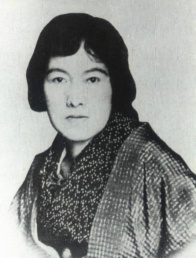 This week I’m sharing tanka by Yosano Akiko as translated by Roger Pulvers.* In a previous post about her work, I focused on the role of tension in her poems. This time around, I have selected tanka that shift narratives midway.
This week I’m sharing tanka by Yosano Akiko as translated by Roger Pulvers.* In a previous post about her work, I focused on the role of tension in her poems. This time around, I have selected tanka that shift narratives midway.
Line by line, the three poems below develop their narrative arc, only to shift in the last two lines. This nuanced skill allows for shifts in perspective (first tanka), a shift in rhetoric (second), or a sudden shift in action (third). Each is a little drama that is accessible to the reader without losing any of its lyrical intimacy.
Two stars deep into heaven
Whispering love
Behind the nighttime curtain
While down below, now, people lie
Their hair in gentle disarray…
夜の帳にささめき尽きし星の今を下界の人の鬢のほつれよ
*
Made to punish men for their sins
The smoothest skin
The longest black hair…
All that
Is me!
罪おほき男こらせと肌きよく黒髪ながくつくられし我れ
*
The girl in a springtime window
Calls to awaken a young priest
Barely a man
His sutras toppled
By her dangling sleeve
うらわかき僧よびさます春の窓ふり袖ふれて經くづれきぬ
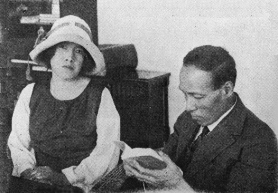
Pulvers’ article ends with a final tanka which he prefaces by sharing how the poem was born out of Akiko’s husband, Tekkan, wanting “her to apply his blood to her lips as lipstick.” The manner in which Akiko describes and seizes upon how quickly physical things change reflects the emotional change and reaction to this strange, if intimate, request.
What will come into my burning lips?
You answer…
“The blood from my little finger.”
But that blood is too dry now
For my mouth
もゆる口になにを含まむぬれといひし人のをゆびの血は涸れはてぬ
*
Happy tanka-ing!
José
*Check out Roger Pulvers’ full article & translations here.
P.S.: Check out the giveaway below!
Goodreads Book Giveaway

Everything We Think We Hear
by Jose Angel Araguz
Giveaway ends December 04, 2016.
See the giveaway details
at Goodreads.


November 30, 2016
* new poem at Terrain!
 Just a quick post to announce that my poem “American Studies” has just been published at Terrain: A Journal of the Built + Natural Environments (link includes audio)!
Just a quick post to announce that my poem “American Studies” has just been published at Terrain: A Journal of the Built + Natural Environments (link includes audio)!
This poem is part of Terrain.org’s “Letter to America” Series which “presents urgent, powerful, and beautiful post-election responses from writers, artists, scientists, and thinkers across the United States.” This series so far includes contributions from a list of notable writers including JM Miller, Jane Hirshfield, and Tara L. Masih. Read more about the series here.
It means a lot to me to get this poem out into the world as it has helped me channel some of the grief, fear, and complicated emotions I’ve been dealing with post-election.
Special thanks to Simmons Buntin for the opportunity!
See you Friday!
José


November 28, 2016
* new essay up at Art + Money!
 Just a quick post to announce the publication of my essay “Snapshots From a Year Without Electricity” in Art + Money!
Just a quick post to announce the publication of my essay “Snapshots From a Year Without Electricity” in Art + Money!
Art + Money is a free monthly newsletter in which writers and artists talk about how money shapes their lives. (No spam. Just crazy-great original essays.) Sign up here: http://tinyletter.com/catbaab/
“Snapshots From a Life Without Electricity” moves in small “snapshot” paragraphs through some of the pivotal moments of the year I lived in my friend Dennis’ house, sans electricity but with plenty of words to keep us going.*
Here’s an excerpt from my essay:
*
In this snapshot you recognize the field mouse as you last saw him. Your friend laughs at you whenever you come to him agitated after hearing the mouse scurry through the unused kitchen. There’s nothing for him there. Let him look around. After months of the mouse eating through books, shelves covered in what could be mistaken for confetti, the aftermath of words being ripped and ground until they weigh thick in ink and pulp inside his belly, you stand frozen here, as if mirroring the mouse. Anyone else looking in would think each still figure waited for the other to begin explaining everything; anyone else would wonder who in this snapshot is unable to move on.
*
Art + Money is published by my longtime friend and fellow writer Catherine Baab-Muguira. My essay has the honor of being the second installment.
Be sure to sign up for the newsletter to check out the rest!
See you Friday!
José
*(This friendship is also the subject of one of the sequences of my chapbook Corpus Christi Octaves).
Goodreads Book Giveaway

Everything We Think We Hear
by Jose Angel Araguz
Giveaway ends December 04, 2016.
See the giveaway details
at Goodreads.


November 25, 2016
* leticia hernández-linares & the mission
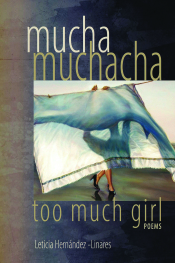 This week’s poem comes from CantoMundista Leticia Hernández-Linares’ collection Mucha Muchacha/Too Much Girl (Tía Chucha Press) which I reviewed earlier this week. While my review focused on collection’s confluence of musical traditions and sensibilities, the poem “Bringing Up the Sun” represents another facet, that of establishing the presence of a neighborhood on the page.
This week’s poem comes from CantoMundista Leticia Hernández-Linares’ collection Mucha Muchacha/Too Much Girl (Tía Chucha Press) which I reviewed earlier this week. While my review focused on collection’s confluence of musical traditions and sensibilities, the poem “Bringing Up the Sun” represents another facet, that of establishing the presence of a neighborhood on the page.
In this poem, Hernández-Linares brings the Mission District alive for the reader, focusing on the political undertones that pervade these streets, from the flags to local businesses. For example, the image in the lines
…Mortuaries abound,
doors wide open like the defeated mouth of a mother
who has lost her son —
establishes a sense of what is at stake in this particular poem as well as sets up the narrative of assessing what it means to raise sons in this neighborhood. This narrative,  implied in the title’s wordplay, is developed here into one of my favorite moments in the collection when the speaker pushes against the “storylines” of the neighborhood through the imagery of “homie dolls.” By juxtaposing the implied social “translations” of these novelty toys against the lessons of redemption and vulnerability of the schoolyard, the poem evokes the tension surrounding young boys without trying to solve it. Thus, the celebration of culture inherent in the toys exists side by side the hope “salvaged” in the schoolyard.
implied in the title’s wordplay, is developed here into one of my favorite moments in the collection when the speaker pushes against the “storylines” of the neighborhood through the imagery of “homie dolls.” By juxtaposing the implied social “translations” of these novelty toys against the lessons of redemption and vulnerability of the schoolyard, the poem evokes the tension surrounding young boys without trying to solve it. Thus, the celebration of culture inherent in the toys exists side by side the hope “salvaged” in the schoolyard.
*
Bringing Up the Sun – Leticia Hernández-Linares
The changing of the flag waves Central American
today. Church bells sit still over a tombstoned dawning.
Heading towards the sun beyond la Dolores, calle
named after pained bricks that hold Mission monuments
together, businesses that help you bury your dead, raise
your stripes, dominate the strip. Mortuaries abound,
doors wide open like the defeated mouth of a mother
who has lost her son.
No news breaks. Three quick facts on a back page,
devoid of desperate looks, gasps stopped
short — nobody of note. Nervous bravado
commands prodigal descendants of volcanic piedra,
once sacrificial daggers reduced to nonchalant weapon.
Brother competes against brother to bring the next day up.
Morning greets wringing hands, shaking heads gathering
for another entierro. Each new day
carrying heavier bags under its eyes.
Flattened metal versions of obsidian scratching out
our sons’ storylines. So many translations of a boy
in the making, made like tiny rubber homie dolls
we spin out for fifty cents.
We salvage hope in the school yard,
where little brothers you can’t get for two quarters
shake hands after getting mad, can’t wait to go ice skating,
tell stories about 500-year-old grandfathers.
On the other side of bright blue school walls that give guise
to us, mortuaries fly flags for good business. Boys start asking
which set of colors belong to them. Stripes block
the light so false emblems sneak in, peddling allegiance,
sacrifice, in the form of our sons.
When I ask after the sun, the old man shrugs.
Es que no sé hija, the flag, the flag was in the way.
*
Happy homie-ing!
José
Goodreads Book Giveaway

Everything We Think We Hear
by Jose Angel Araguz
Giveaway ends December 04, 2016.
See the giveaway details
at Goodreads.


November 22, 2016
* new poem up Rove!
 Just a quick post to announce the publication of the latest issue of Rove, a digital broadside quarterly!
Just a quick post to announce the publication of the latest issue of Rove, a digital broadside quarterly!
Check out “The Rhetoric of Todo” , from my Nada Poems sequence, rendered as a beautiful digital broadside in this issue.
I am happy to have this poem presented alongside stellar work by Miriam Bird Greenberg, Tyler Brewington, and Katie Hibner. Check out the issue here.
Special thanks to Donika Kelly, Elizabeth Barnett, and Monte Holman at Rove!
See you Friday!
José
Goodreads Book Giveaway

Everything We Think We Hear
by Jose Angel Araguz
Giveaway ends December 04, 2016.
See the giveaway details
at Goodreads.


November 21, 2016
* new review up at Queen Mob’s Tea House!
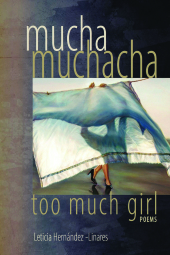 Just a quick note to share my review of Mucha Muchacha/Too Much Girl (Tía Chucha Press) which can be read at Queen Mob’s Tea House!
Just a quick note to share my review of Mucha Muchacha/Too Much Girl (Tía Chucha Press) which can be read at Queen Mob’s Tea House!
Special thanks to Ruben Quesada & Erik Kennedy of QMTH for the opportunity and insight!
See you Friday!
José
*
Goodreads Book Giveaway

Everything We Think We Hear
by Jose Angel Araguz
Giveaway ends December 04, 2016.
See the giveaway details
at Goodreads.


November 18, 2016
surfacing with lisel mueller
I chose this week’s poem “In Praise of Surfaces” by Lisel Mueller in hopes of providing some further uplift after last week’s election. I say uplift but don’t mean dismissal or acceptance, words that keep arising in the conversations between my wife and I late into the night. Some part of us has grown quiet and we keep talking to bring it back.
Mueller’s poem is fitting as it centers on praise, which is a similar kind of reaching out. In each section of the poem, Mueller’s speaker displays a deft sensitivity not only to touch but to the ways language can touch such “surfaces.” If, as the speaker notes, “one flesh is all / the mystery we were promised,” then one praises mystery in praising the body’s surfaces. This urgency is carried through down through the final section’s skin diver conceit, where effort is placed behind the need for the speaker to “collect” the beloved “rock by wet rock” and word by word.
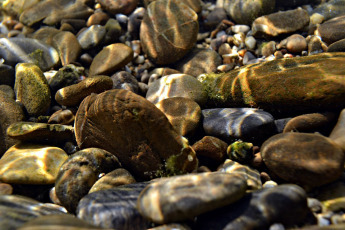
In Praise of Surfaces – Lisel Mueller
I
When I touch you
with hands or mouth,
I bless your skin,
the sweet rind
through which you breathe,
the only part
I can process. Even
that branch of you
which moves inside me
does not deliver your soul:
one flesh is all
the mystery we were promised.
II
“To learn about the invisible,
look at the visible,” says
the Talmud. I have seen you
for so long, you are
ground into the walls,
so long I can’t remember
your face when you’re away,
so long I have to look
each night when you come home
at the tall surprise you bring
me, time and time again.
III
Words too are surfaces
scraped or shaken loose.
When I listen to you
I pick up rocks,
shells, algae
brought up from darkness.
Sometimes I
come close to catching
a fish bare-handed;
angling, I always fail.
No skin diver, I
could never reach bottom;
rock by wet rock,
piecemeal,
I collect you.
*
Happy collecting!
José
Goodreads Book Giveaway

Everything We Think We Hear
by Jose Angel Araguz
Giveaway ends December 04, 2016.
See the giveaway details
at Goodreads.


November 11, 2016
* heartening with jm miller
Paper Sparrows (At the Museum) – JM Miller
a slip of paper no larger than a dollar
records the scale of value for a slave.
Rows of age and rows of worth, the black
body’s gains & losses over time.
You see the paper is degrading, yellowing
tree fibers from an oily thumb nearly enough
to erase the pencil’s mark.
At the next exhibit white poets
read paper sparrows to sleep —
a stiff wind in their feathers — still
love in their curated bodies of paper.
They lean in until a black fly in the bird’s eye
tires, eating away the carrion into sight,
& they see suddenly a boy,
his invisible hands raised, opening his heart
to a country refusing to remember him.
Some keep the dead alongside them,
feathers in the cap, the bittersweet blues
of fairy tales, while others open & close
the birds’ beaks to hear
the price of a spirit, the labor of a body,
a hundred dollars for each year of your life,
the value of a dead boy in the street.
*
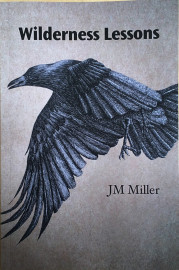 I’m proud to share another round of poems from JM Miller’s collection, Wilderness Lessons (FutureCycle Press), which I did a microreview & interview of earlier this week.
I’m proud to share another round of poems from JM Miller’s collection, Wilderness Lessons (FutureCycle Press), which I did a microreview & interview of earlier this week.
This week has been tough for me. The election has left me devastated and fearful. I say this without any exaggeration, nor with any malice toward anyone. I speak primarily to share how I wake up feeling hyperaware of the color of my skin, what it might mean for my wife and I in public, and how people I love and care for from different backgrounds and communities are having to reckon with similar emotions and worries. Thank you to everyone who has reached out regarding our safety. Thank you for everyone who has shared some of their story and allowed me to carry some of the pain for them. If any of this hits home for you, please know you are not alone.
I return to the work of JM Miller this week with greater gratitude for the mixing of worlds and insights therein. In “Paper Sparrows (At the Museum),” I am moved by the way poetry can show how an abstract concept like history can be affected by “an oily thumb,” and is thus able to evoke the human pulse behind artifacts in a museum. With the metaphor of “paper sparrows,” Miller’s poem pushes against the museum narrative further, plunging into bird imagery until the reader is taken to a more contemporary moment. In a deft series of couplets, history and today’s fraught political climate are juxtaposed in a way that brings out the human element of exhibits and headlines.
This engagement with the human element is one of the many wonders of Wilderness Lessons. Miller’s poems present the world under our animal eyes in a way that reminds us what there is to value in it. I read the poem below this week and am heartened, able to recall that: It is good to be in this body, scrubbing the planet // from our hands, then reaching for more.
*
Equinox – JM Miller
The bus fills with apple slices of sun
on the burnt crest of equinox.
My love is at home lifting the last
golden beet from our tiny plot,
rinsing cool dirt from its roots, setting
aside its greens for dinner.
Here our bodies pinch slightly for balance
as our minds move sluggishly through time,
the hours pushing downward now, tender
rose hips wrinkling into pungent syrup
that leaves a river of stain on our fingers.
It is good to be in this body, scrubbing the planet
from our hands, then reaching for more.
The granite lid over Washington shadows in
from the southwest & we are none the worse
for loving, for losing horizon for so long.
Hunger is neither shame nor enough when
our bodies pull together in stillness.
*
Happy heartening!
José
Goodreads Book Giveaway

Everything We Think We Hear
by Jose Angel Araguz
Giveaway ends December 04, 2016.
See the giveaway details
at Goodreads.
November 7, 2016
* microreview & interview: jm miller
For this microreview & interview, I present close readings of two poems from JM Miller’s collection Wilderness Lessons (FutureCycle Press, 2016), as well as share some insights from the poet on the work in their own words.
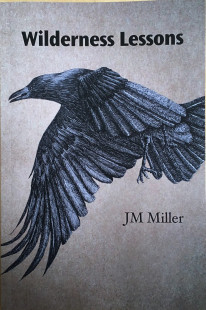
Field Notes (The Arcade Poem) – JM Miller
For fifty cents you can sharpen a fang,
sink your claw around the rifle’s trigger.
Take cover behind the bush, resist the rosemary’s
aroma, and sidle the plastic butt firmly to your shoulder.
Programmed sunset drips in the background, breathe
an arrow down the gun’s sight, you’ve been here before.
A deer hops through the pasture, nibbles oat straw,
looks straight up the rifle’s barrel.
Confess you love the composition, the way
it eases your senses into a finely tuned fork
banging against flawless crystal.
Confess you loved that talented seal on TV who gripped
drum sticks, beat Sweet Caroline into trash can lids
in David Letterman’s uptown studio.
The seal’s name was Henrietta and you wanted to accompany her
with your bamboo recorder like the solo performance
in the lunchroom when you were ten. All red-faced,
asphyxiated, and wanting to die. We were all dreams then.
Shoot the deer. You shoot the deer, drop the rifle,
and leave the bar. Who knew she’d come prancing out—first right to left
then so innocently left to right, begging to be seen.
The landscape drew you in, made a promise.
You became the animal you were meant to be.
*
Miller’s speaker here wastes no time in bringing the reader into the details of the scene. Yet, it is the diction and the subsequent character of narration where the scene comes to life. The phrasing of “sharpen a fang” and “sink your claw” frames a casual first person shooter at an arcade into animalistic transformation. In doing so, the poem amplifies the reality being replicated in the arcade game and immediately points to its problematic nature.
This high stakes approach is pursued as the poem goes on describing the “Programmed sunset…in the background.” The vividness of description is echoed in the speaker’s statement, “Confess you love the composition,” making use of the intimacy of narration to highlight the seduction inherent not only in the play of the arcade game but in the images as well. If “fifty cents” allows one to tap into a more animalistic state, then it is a (re)turn to something already inside human nature, something as tied to human experience as a childhood memory. From the pixellated scene of the game to a pixellated scene of a seal drumming on late night TV, the poem shifts into a parallel that further complicates its meditation on play and performance. Here, the line “The seal’s name was Henrietta and you wanted to accompany her” is telling; in one line, the speaker both humanizes the seal-turned-spectacle but also lays bare a feeling of being caught up in the spectacle (much as the speaker is caught up in the game early in the poem).
Thus, the speaker’s narrative is charged with a mix of culpability and innocence which points to an awareness of the stakes behind man-made “games” and “shows,” and what they trigger inside. In this light, the speaker’s admission that “We were all dreams then,” feels both like an explanation and an excuse. When the speaker admits, “You became the animal you were meant to be,” a note of betrayal and conscience is struck that rings out beyond any pixellated screen.
This note of mortal reckoning is picked up at several points throughout the collection. In the poem “Desert Autopsy (2012),” Miller announces that “the poets have arrived…[to] stand here in the hollowed tree, / language unfolding like children.” The phrase “language unfolding like children” speaks to the sense of witness that poets seem capable of, a witnessing that keeps things new and fresh. An example of this “unfolding language” can be seen mid-poem when the speaker states:
What is the effect of drought?
ask the government buildings
drawing blueprints to save the world,
while a pinyon tree simmers in its bark behind a plexi tower.
It shrivels, starves, lets its branches down.
By placing the question in the mouth of the concrete, inorganic presence of “the government buildings,” Miller is able to work a startling juxtaposition into human terms. While the question’s rhetoric places drought in the realm of the abstract and theoretical, the poem’s emphasis on the pinyon tree image brings us back to solid, living material. In these two stanzas, the image of government buildings and trees sound out the physical absence of humans as well as the full presence of human development.
As in the previous poem, the speaker here is aware of their implied role in this scene. Yet, in this poem, the speaker is able to point to the possibility of expanding their role as witness when they answer the question regarding drought with their own: “I can’t climb this picture, but can you imagine it?”
This second question is a compelling and engaging moment in a poem, and collection, that shows the value and power of such imagining.
*
Desert Autopsy (2012) – JM Miller
The harbor pulls in, pulls its sheet tight, pulling
the ground under.
Wintering conifers lean over the banks examining
barnacle-pendant, seaweed-swimsuit.
I, too, bend my body in the lean
for wild. To walk away from the sea
is to be naked at wartime,
a gazing body.
I remember the wrecked season, white bone
of drought, fire opening its giant jaws in the west,
gypsy moths spinning cocoons of sorrow.
On the last day of the year, pinyons and junipers are dying.
Fences in Los Alamos still breathe fire.
What is the effect of drought?
ask the government buildings
drawing blueprints to save the world,
while a pinyon tree simmers in its bark behind a plexi tower.
It shrivels, starves, lets its branches down.
I can’t climb this picture, but can you imagine it?
You’ve seen the pinyon grow, twisting like wet laundry
devoted to the wind sculpting mesa and valley.
I’ve heard the trees roam at night, calling with their voices.
What was it, the solemn whisper,
What calling rubbed the wind, combed the wintering
pencils of grass, laid bare the open spaces. And then I knew
it wasn’t for me, not me on the wind, not for me
were the long shadows, invisible xylem of veins,
not mine the forged silver, fortune of stars.
Army, the poets have arrived, call your horses, call
the cavalry. Lick your feathers, stick them to the dying.
We stand here in the hollowed tree,
language unfolding like children.
*

Influence Question: How would you say this collection reflects your idea of what poetry is/can be?
Poetry is an invitation to walk into an empty space of being. I wanted Wilderness Lessons to feel like an opportunity for a reader to walk into their own space and find themselves: their purest, most vulnerable self.
As a trans-writer, it is urgent for me to find myself in my work, it is a form of survival. I am looking for the self beyond labels and projections – the one free from attachments. When I started writing Wilderness Lessons several years ago I discovered a liminal space for existence. This would become known as the “Unbetween” – a place without relationality. I had been immersed in Brenda Hillman’s collection, Loose Sugar, and the poem “Unbetween” was a way for me to have a conversation with her work.
My hope is that “Unbetween” – which is not a space between things, but a liminal space, a nothing space, a no space – invites a reader’s pure spirit and phenomenology to the surface.
I remember reading a phrase from Adrienne Rich, that “poetry is not a healing balm,” nor many other things. But it does heal. It heals through a unique listening, an absolute presence. And it is my belief that as we heal ourselves, we gain the power to heal others, to heal the broken systems of our civilizations that enact oppression and violence against marginalized people and the planet and its beings.
Influence Question: What were the challenges in writing these poems and how did you work through them?
I got in my own way a lot throughout the writing of Wilderness Lessons, and most of that had to do with the need to dismantle the restrictions of what a poem can be or do. For instance, I admire ecstatic imagery and rational rhetoric, and I looked for ways to use them together in a lyric poem. Also, it seems like Round 7 of “End of the World” was the background hum to this collection. I was nearing a poetics of urgency, but still trying to have faith in representation and the lyric.
This book also marks a time of profound transformation in my life: getting comfortable with my trans identity, beginning to dismantle my white privilege, getting married, dedicating myself to teaching, living in a city and finding my way toward becoming an environmental activist. It was an urgent time, one of immense uncertainty. These poems were my way through the times in one’s life in which everything shows up and could be lost. These poems held; they found me and held on.
***
Special thanks to JM Miller for participating! Find out more about Miller’s work at their site. Wilderness Lessons can be purchased from FutureCycle Press.
*
Goodreads Book Giveaway

Everything We Think We Hear
by Jose Angel Araguz
Giveaway ends December 04, 2016.
See the giveaway details
at Goodreads.


November 4, 2016
* visiting Jeju w/ daniel paul marshall

photo by Joey Rositano
This week’s post features a poem by Daniel Paul Marshall. Marshall writes about the Haenyeo, female divers from the Korean province of Jeju. The Hangul for the word, (해녀)roughly translates to sea women, and serves as the title for this poem.
When I informed Marshall I planned on featuring this particular poem, he was kind enough to share the following:
The tradition of the Haenyo, the lady divers of Jeju, sometimes mythologized as the mermaids of Jeju, dates back some 1500 years.Their tools, other than their updated wet suits, have not changed. They dive as a group, for safety & socializing. They dive in all weather, all seasons. Their strength & endurance to the elements is astonishing.Their shamanic traditions are dwindling from what i gather, their mean ages is 70 odd & the younger generation is not being trained in this ancient custom.
This poem finds them after a dive. They were changing in a public toilet near Sanbangsan & my wife & her friend were waiting for them to finish to see if they could purchase some of their catch. Eating sashimi this fresh, straight from the Haenyo is the best & rarest means of eating it. The divers make a lot of money selling this way, they charge $40 for a belly full.
Along with this insight into the culture and poem, Marshall connected me with the work of Joey Rositano whose book Spirits: The Story of Jeju Island’s Shamanistic Shrines helps “recover the tradition of Jeju shamanism, which he believes stands at the center of Jeju identity itself.” The two photographs in this post are from Rositano’s project. His work raises awareness about their dwindling culture due to over development.
Reading the poem below, I am stunned by the freshness of the language. A line such as chattering like clam maracas, arms brachiate blustered replies is vivid both in terms of sounds but also in its tone. Respect and awe are evoked here indirectly. Through moves of lyrical richness, Marshall’s poem takes us down into the details of this world.
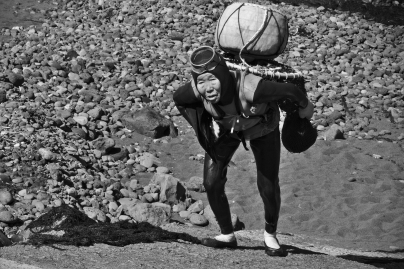
photo by Joey Rositano
해녀
– Daniel Paul Marshall
you can see them in shoals by drainage puddles after a hunt,
de-snorkeled & out their trademark wetsuits & flippers
they no longer resemble baby seals.
in their mammalian clobber : nylon padded paisley coats & neckerchief.
the tourists’ timidity quashed, they peddle more raw creatures of the sea.
any place with an outdoor water source they squat,
peeling onions & garlic, slicing the ends off & scrubbing them clean.
all they hunted in red or blue plastic buckets
: abalone, sea snail, mussels & clams;
their rudimentary cells throbbing in the cold salt water.
chattering like clam maracas, arms brachiate blustered replies.
i see tourists with questions halted at the portico of their mouths;
eager to know how mermaids feel whilst rummaging coral nooks
– i know how they’d reply
: why talk romance without even a pocket of oxygen.
*
Happy diving!
José
*
To find out more about Daniel Paul Marshall’s work check out his site.
To find out more about Joey Rositano’s photography & documentorial work on behalf of the history, language, and identity of the people of Jeju, check out his site as well.
Goodreads Book Giveaway

Everything We Think We Hear
by Jose Angel Araguz
Giveaway ends December 04, 2016.
See the giveaway details
at Goodreads.







